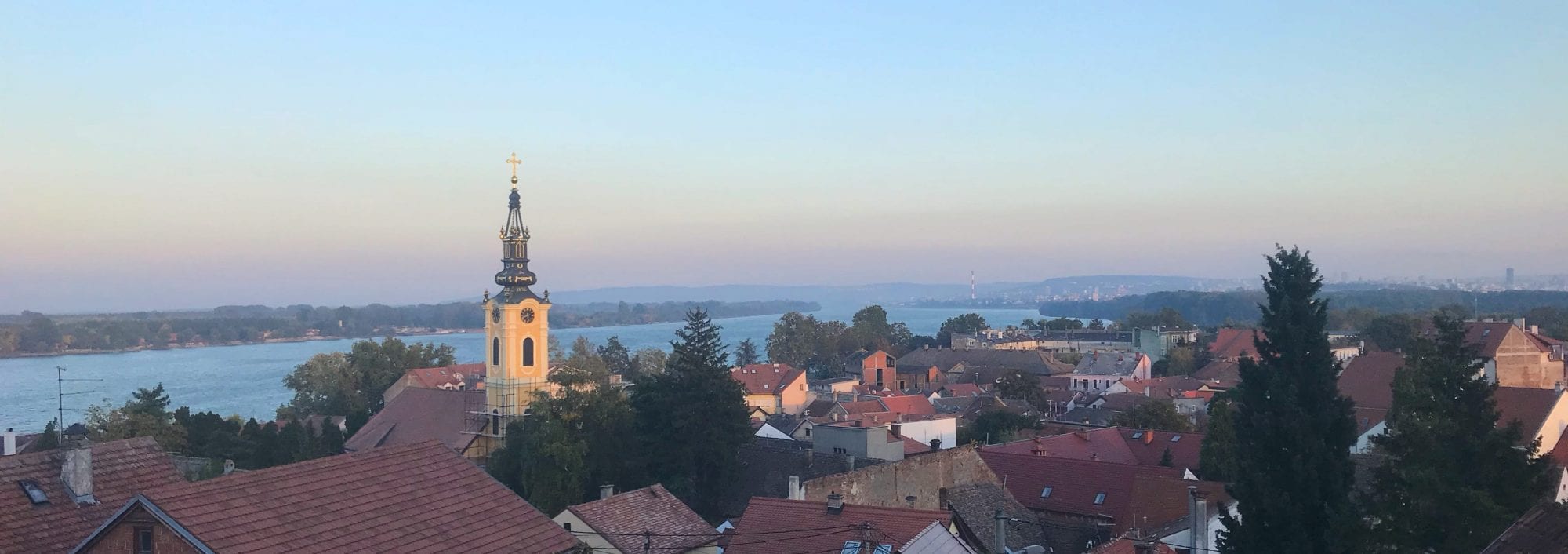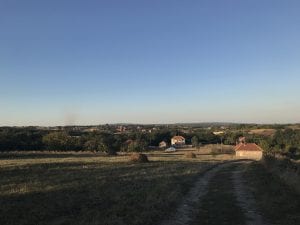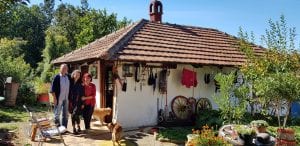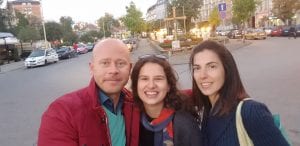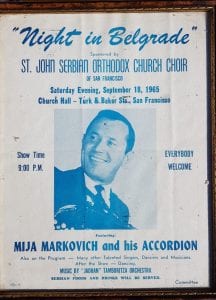In the past two weeks, I’ve really begun to take a look at my experience studying abroad so far. I’ve been in Serbia for almost 5 weeks now, so I’m getting very comfortable navigating the city, balancing classes, and living with my host family. However, my perception of my position here as an American student is continuously being challenged and reshaped every day.
My position here really struck me when I went to visit my family this past week. One of the reasons I chose this program is because my grandfather lived in the former Yugoslavia before immigrating to America – so I’m actually 1/4 Serbian! My mother has visited Serbia a few times before – with her father and also to take care of his affairs when he died – and so she has kept in touch with my family here. This past week, I met up with my cousin who took me to see my grandfather’s village, Desimirovac (pronounced de-see-me-ro-vats), just 2 hours south of Belgrade.
This village is just outside of Kragujevac (kra-goy-eh-vats), which was the capital of the Kingdom of Serbia in the early 19th century. Today, Kragujevac is home to the main Fiat manufacturing center of Serbia.
I first met up with my cousin and his wife, and he took me to visit my grandfather’s grave. My grandfather, Miodrag (Mija), died in 2002 – I was four years old. After visiting his grave, we walked a little past the cemetery and stopped at the top of a hill. My cousin pointed down the hill to a white house – “that was his house,” he told me. As we walked down towards the house, he pointed to the fields around saying that these were all mine (it felt a bit like lion king…heheh).
As we approached the house, we saw a man walking with a dog in front. My cousin went up to him and pointed at me, speaking in Serbian. The man then turned to me and smiled really big and immediately hugged and kissed me. He left to get his family so they could also meet me – since they’re all my relatives! In Serbia, cousins are called brothers and sisters. So while these relatives are technically something like third cousins twice removed, in Serbia they’re just my uncles and aunts!

With family in front of my grandfathers house!
It was so incredible to meet these people who knew my grandfather and mother, and who immediately welcomed me and loved me! From my very beginner knowledge of Serbian, I could pick up a few phrases as they all talked to me in Serbian. The word “isto” means same, and they kept saying that referring to my mother – apparently we look very alike. After taking many many pictures, I said goodbye (or ćao, drago mi je, and vidimo se!) and we returned to the city.
The next day, we went to a village a little farther out from Desimirovac, to see my cousin’s parents. Their beautiful home sits in the middle of green hills and trees. We sat in their garden, as my aunt brought out trays of food and grapes for me. She also brought out a poster of my grandfather from 1965 – he performed in San Francisco (see the picture below). She told me how much he loved me – how he loved to talk about his baby Bella. From only having vague memories of him, to hearing her talk about him and seeing the places he grew up and lived in – the experience was surreal.
I still can’t believe I’m here. When I was meeting all these relatives, I kept thinking about how I’m the young cousin from America. I’ve had the privilege of traveling, getting an amazing education, growing up in a wealthy country… and it’s all because my grandfather left Yugoslavia and ended up in Los Angeles (and a bunch of other circumstances of course). I’ve traveled outside the US before, and it’s made me constantly consider my position in this world. As an American student, when I enter a new environment, I am not alone. I come with the history, influence, and culture of my country. Being in a different country, therefore, really reflects the perspectives of the US that we are so blind to when stuck in our American bubble.
However, in Desimirovac, where I was immediately welcomed and accepted as a part of the family, I lost part of that. As one of my uncles said when he met me, “I’m a Marković and you’re a Marković!” There is a part of me that feels connected to this land, to the people and the history – and that is something I’ve never had before. But at the same time, I did not grow up here. I do not speak the language (yet!) and I don’t even fully understand the history!
As I meet Serbian people, I am automatically categorized as a foreigner – an American. Serbia and America haven’t had the most positive relationship in the past – considering NATO bombed Serbia and all… but that doesn’t mean people immediately hate me for being American. People are very friendly and kind, but the fact that I come from this wealthy, elitist country doesn’t just disappear.
I guess what I’m trying to say is that this American side of my identity is inescapable. I will always be an American and will always carry the burden of responsibility for America’s past and present actions, since I am a citizen of that country. But being in this position, where I also see this culture as part of my heritage, has made me consider Serbian perspectives even more. It’s placed me, momentarily, outside of my American identity. As these different aspects of my background interact, I feel I am discovering more about the complexity of world politics, specifically in the context of this region.
To add another layer of confusion, just a few days after meeting my Serbian family, I left to Kosovo for 5 days. Kosovo is a contested area – it declared independence in 2008 but remains unrecognized as a country by Serbia and 86 other countries. The controversy of Kosovo is especially strong in Serbia, which holds unique cultural ties to the land. This means that most people in Serbia and Kosovo have very, very strong opinions about this issue.
So if you’re still with me, head to part 2 to see how the experience of meeting my Serbian family and then spending 5 days in Kosovo has challenged my perspectives even more…
